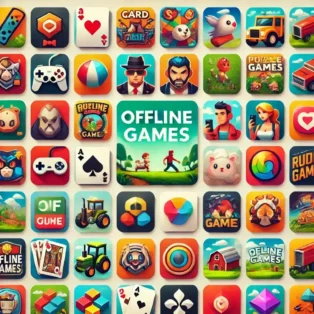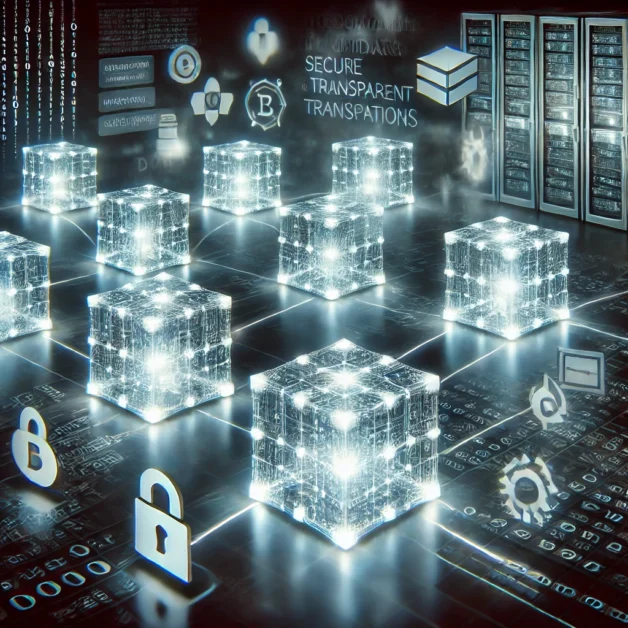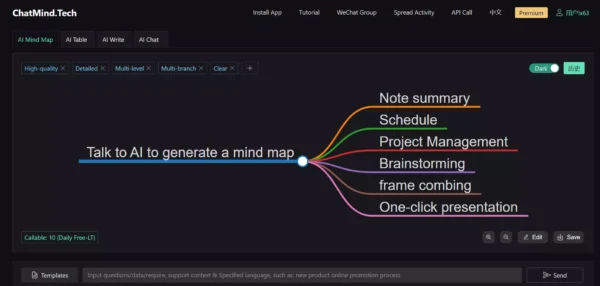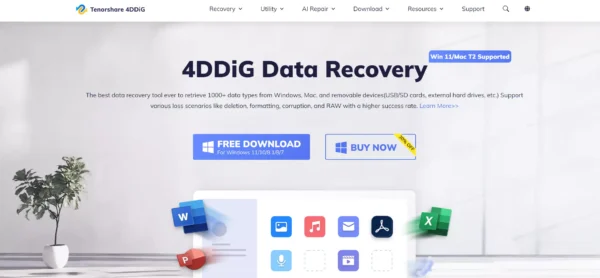In recent years, technology blockchain has been seen as a revolutionary milestone in the digital world. Although it initially became popular with cryptocurrencies, it has rapidly expanded into several other areas, offering innovative solutions for data security, process transparency and much more. In this article, we'll explore in depth what blockchain is, how it works and its applications beyond cryptocurrencies, as well as tips for those wishing to invest in this technology.
What is Blockchain?
Blockchain is a distributed ledger technology that allows data to be stored in a secure, transparent and immutable way. The technology works like a chain of blocks, where each block contains a set of transactions or information and is linked to the previous block through a cryptographic signature. This process ensures that once information is recorded in a block, it cannot be altered without everyone involved in the network noticing, making any attempt at fraud extremely difficult.
How does Blockchain work?
To put it simply, imagine that the blockchain is a digital ledger where, with each recorded transaction, a new block is created. This block contains information about the transaction (such as who sent it, who received it and the value of the transaction), a unique signature generated by a cryptographic function and a code that links the block to the previous one.
The most important aspect of blockchain is its decentralization. Unlike traditional systems, where data is stored on a single server controlled by a central authority, in blockchain, data is stored on multiple computers (called nodes) that form part of a network. For a transaction to be validated, most of these nodes need to agree on its authenticity, guaranteeing trust without the need for an intermediary.
An example of how it works
Let's use an example from the financial sector: imagine you're sending money to a friend using cryptocurrencies. When you make the transaction, it is recorded in a "block". Before being confirmed, the transaction goes through a verification process in which several computers on the network (the nodes) validate that the money really is available in your account. Once validated, the transaction is added to the "ledger", becoming a permanent and immutable part of the blockchain. This process makes transactions extremely secure and transparent.
How Does Blockchain Go Beyond Cryptocurrencies?
Although Bitcoin and other cryptocurrencies are undoubtedly the best-known cases of blockchain, the technology offers a range of applications that could transform various sectors. Below, we'll explore some of these applications.
1. Data Security: Protecting Sensitive Information
Data security is a growing concern for companies and consumers. With the increase in cyber attacks and data breaches, protecting sensitive information has never been more important. Here, blockchain can be an effective solution.
Imagine, for example, the health sector, where the privacy of patient data is fundamental. Using blockchain, hospitals and clinics can ensure that health records are stored securely and that only authorized people can access them. This is possible because, as each transaction (or piece of data) on the blockchain is encrypted and recorded immutably, the chance of a hacker tampering with or accessing the data without permission is drastically reduced. A real example is the use of the blockchain by the company BurstIQ, which uses technology to protect and manage health data, allowing patients to control who accesses their information.
2. Transparency and Auditing: The Solution for Transparent Processes
A transparency is another area where blockchain shines. As every transaction recorded on the blockchain is public (but encrypted to protect sensitive data), it creates an immutable audit trail that can be verified by anyone at any time.
In the supply chainsFor example, blockchain can guarantee that a product has been manufactured ethically, with sustainable materials and in accordance with standards. Companies such as Walmart e IBM are using blockchain to trace the path of food from producer to consumer, offering greater transparency and security for customers. Traceability not only guarantees product quality, but also allows consumers to verify the origin of the items they are buying, which is especially important in a scenario of growing concern about sustainability.
3. Smart Contracts: Automating Agreements without Intermediaries
One smart contract is a self-executing contract, where the terms of the agreement between buyer and seller are written directly into the program code. This means that the terms of the contract are automatically executed when the agreed conditions are met, without the need for intermediaries such as lawyers or banks.
For example, imagine you're buying a property. With blockchain, you could create a smart contract that only releases payment when all the conditions of the contract (such as the transfer of ownership of the property) have been met. A successful example of the use of smart contracts is the platform Ethereumwhich allows the creation of smart contracts for a variety of applications, from the real estate sector to the automation of financial processes.
4. Blockchain in Electronic Voting: Security in Elections
Blockchain can also be applied to improve security in electronic voting systems. Instead of relying on central servers to store the votes, each vote would be recorded in a block on the blockchain, making it immutable and impossible to manipulate once recorded.
One example of how blockchain can be used in electoral systems is the project Follow My VoteThis is the result of the launch of a new project, which seeks to implement a blockchain-based voting platform, guaranteeing the integrity of the electoral process and the privacy of voters. The transparency of the system would allow anyone to check the vote count in real time, increasing confidence in the elections.
5. Blockchain in the Energy Sector: Creating Decentralized Distribution Networks
The blockchain can also be used in the energy sector to create decentralized networks of energy distribution. Instead of relying on large corporations to generate and distribute energy, blockchain allows consumers to sell or share excess energy generated by renewable sources, such as solar panels, directly with other consumers. This creates a more efficient and fairer market.
The project Power Ledger, for example, is using blockchain technology to enable the trading of renewable energy in a decentralized way, allowing consumers to become "producers" of energy, sharing the excess with other users of their network.
How to Invest in Blockchain?
If you are interested in investing in blockchainThere are several ways to expose yourself to this emerging technology.
1. Investing in cryptocurrencies
Investing in cryptocurrencies such as Bitcoin, Ethereum and others is one of the simplest and most direct ways to expose yourself to the potential of the blockchain. However, it is important to remember that the cryptocurrency market is highly volatile and involves significant risks. Before investing, it is essential to understand how these currencies work and the factors that influence their prices.
2. Investing in Shares of Blockchain Companies
In addition to cryptocurrencies, many companies are developing blockchain-based solutions. Investing in shares in companies that are active in the development of blockchain technologies can be a safer way to gain exposure to the sector. Companies such as IBM, Microsoft e Ripple are leading the way, offering blockchain-based solutions to companies in various sectors.
3. Investing in Blockchain Startups
Another opportunity is to invest in startups that are creating innovations with blockchain. Crowdfunding platforms or venture capital funds specializing in technology can be good options for those seeking exposure to cutting-edge innovations. Startups such as VeChain e Filecoin are developing blockchain solutions for supply chain management and data storage, respectively.
In conclusion...
A blockchain is much more than the basis of cryptocurrencies. It is transforming sectors such as data security, smart contracts, transparency in supply chains, electronic voting and much more. Technology has the power to change the way companies operate and how consumers interact with digital services. For those looking to get ahead, investing in blockchain, either through cryptocurrencies or in companies and startups that use this technology, can be an excellent way to take advantage of this digital revolution.
Read also:












